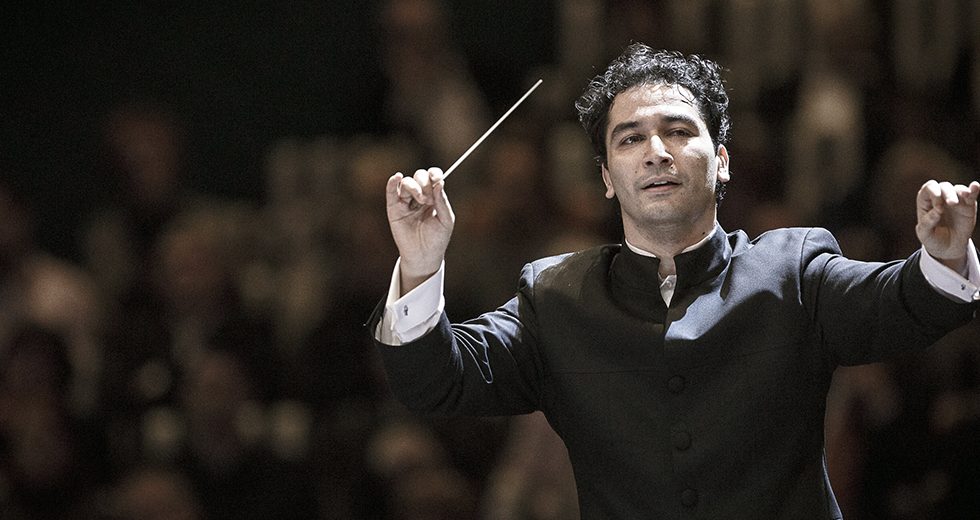
Andrés Orozco-Estrada finds himself in a month of Mahler. At the Houston Symphony, he opened his fifth season as music director with a program anchored by the composer’s Symphony No. 2 (Resurrection). As a guest conductor, he leads the Chicago Symphony Orchestra, Women of the Chicago Symphony Chorus and Anima-Young Singers of Greater Chicago in Mahler’s Symphony No. 3 on Oct. 11-14.
“Mahler changed the way classical music has to be played … what you need most of all is the soul, what is inside every person,” he said in a recent interview with Houston Public Media. “He was able to put [this quality] in his music. The music works only if you give everything you have. But that’s not as easy as it sounds.”
The Colombian-born conductor has a long-standing bond to the composer. In 1997, he moved to Vienna, where he joined the conducting class of Uroš Lajovic, a protege of the legendary Hans Swarowsky, at the acclaimed Vienna Music Academy. Mahler figured extensively in his studies. “When I first came to Vienna, I sang as a tenor in Mahler’s Eighth Symphony,” he said in conversation . “I felt then that I had a deep emotional connection with Mahler’s music, and I wanted to explore his whole universe from the beginning. The opening of his First Symphony is like the entrance to that new universe. He marks it naturlaut — like a sound of nature — and once the movement gets going, it’s just very singable. In fact, the first theme is taken from one of his songs. That’s one of the very modern things about Mahler’s instrumental music — you can sing it.”
Just as essential, Mahler knew first-hand what a conductor needs from a score. “My present to myself at Christmas 1997 was a score of Mahler’s First, and I was amazed by the German instructions he’d written all over the music,” he said. ‘There were just so many words — not only musical terms, but even how to conduct, saying where you need to beat in 8 or in 4, which melody or counter-melody to bring out. I started translating them all, but it was only a pocket score, so before long I’d covered the entire thing in Post-It notes! I thought, this is truly a composer and a conductor in one.”
With music that embraces sublime heights and unashamedly impassioned depths, Mahler turned out to be a man of our time. “He really wanted to try everything in his music, without any kind of inhibition,” he said. “After the 20th century, with all its suffering, we’ve become more humane, more respectful of different cultures and values.”